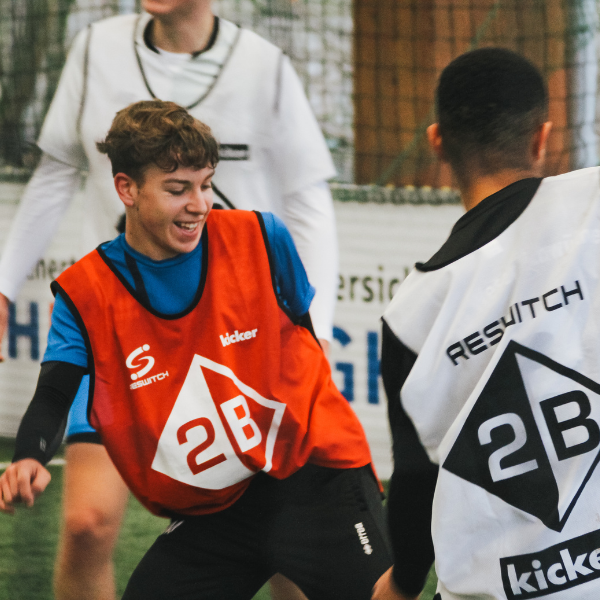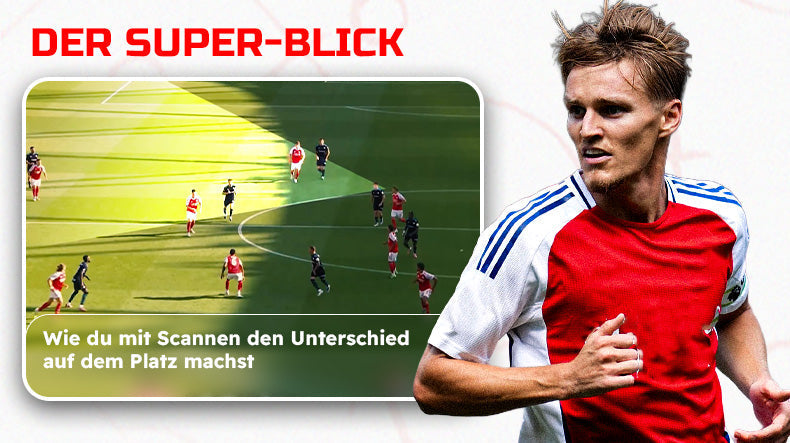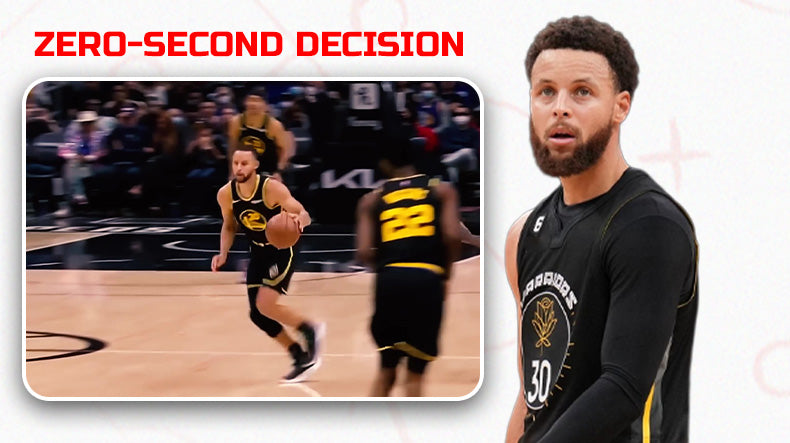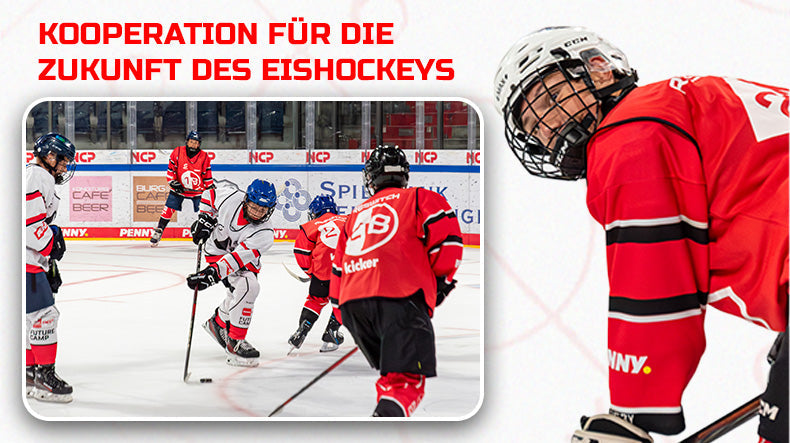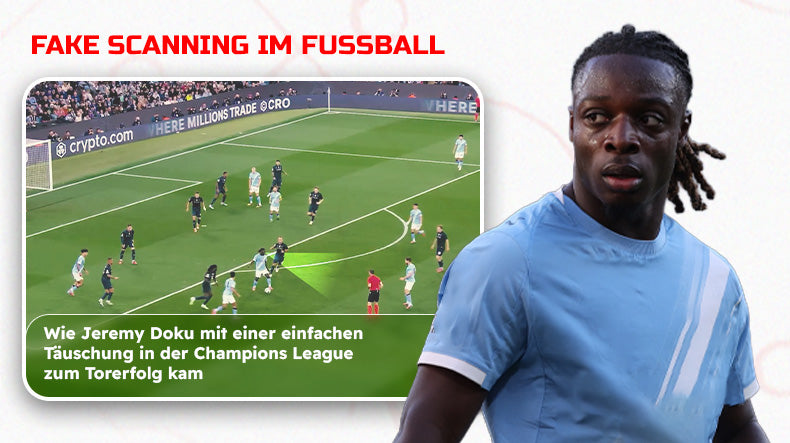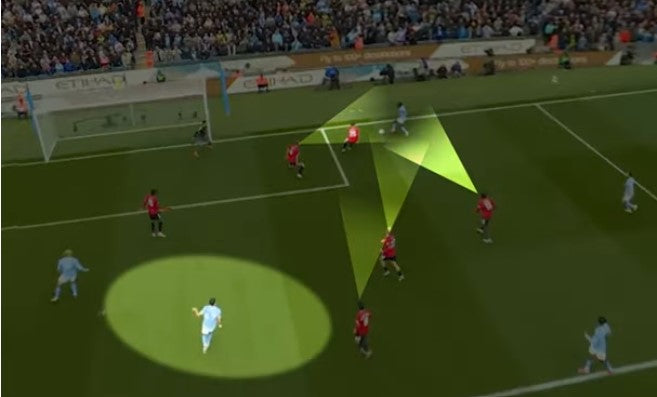Guest article: The development of game intelligence in children's football - an accompaniment or essential?

by Tobias Bluhm – kinderfussball.org
There is currently a lot of discussion in German youth football about how we can train our youngest players even better in order to produce more top-level players in the future.
In addition to the introduction of the Fair Play League, where the children are initially relieved of the pressure to achieve a result so that they can play freely and creatively again, there is now talk of another change in the form of competition. This new form of competition is called Funino. A game where the children demonstrate their skills in a 3 against 3 match. Small playing fields, small teams, lots of ball contact, lots of goals and therefore more success for each individual child are just some of the many advantages of this form of game developed by Horst Wein in the 1980s.
The aim of Funino is to improve children's game intelligence, i.e. their perception, anticipation, creativity and analysis of game situations. A training focus that is far too often neglected.
If you ask many youth coaches what they want to teach their players, they only say:
“They should be able to dribble, shoot and pass well. Passing is particularly important to me. So keep your head up, see your teammates and pass the ball to them.”
In principle, these training focuses are not wrong, but the question is how to teach them.
Many coaches think that their players will learn to pass when they have mastered the passing technique really well. Therefore, children as young as 8 or 9 are often taught a variety of passing sequences. Pass – clap – pass – turn – play out – cross – overhead kick – goal – celebrate like Balotelli 🙂 . A little exaggerated, but that's roughly what it looks like when many junior coaches try to teach their players how to pass and recognize their teammates. Most of them are then surprised why the children simply can't put it into practice later in competition. After all, they trained so hard. The reason for this is the lack of encouragement of game intelligence.
What is game intelligence?
To put it simply, game intelligence means that a player makes the right decisions as often as possible in a variety of game situations. The fewer wrong decisions a player makes, the higher his game intelligence is.
An intelligent player has already decided what to do next before he receives the ball. Less intelligent players only start thinking when they have the ball at their feet.
Before a player finds the right solution, he automatically and subconsciously goes through four phases. The interaction of these phases ultimately makes an intelligent kicker.
#1 Perception
- Recognize relevant information for each game situation
- Pre-orientation
- Where am I on the field right now?
- Where are my teammates?
- Where is the ball?
- Where are my opponents?
#2 Understanding and interpreting
- Assess the game situation correctly
- Access experience and knowledge
#3 Decision making
- What do I need to do to solve the problem?
- Weighing up opportunities and risks
- find a suitable solution
#4 Technical design
- Motoric implementation, for example a pass, a dribble, a quick turn, a shot on goal or much more...
3 of these 4 phases take place in the head and actually constantly throughout the entire game. This is why a world-class player like Andrea Pirlo said: "You play football with your head. Your feet are just your tools."
That's exactly how it is, because 80% of the mistakes in professional football are decision-making errors (game intelligence) and not technical errors.
This means that no matter how technically gifted you are and how many passing sequences you train, if the players cannot find solutions for certain game situations, often make wrong decisions or simply take too long, a large and extremely important component is missing.
“Only thanks to his game intelligence is it possible for a player to translate his technical and physical abilities into an effective performance.” – Horst Wein
How can you train gaming intelligence?
Quite simply, through game-oriented training. That means forms of play in which the children are repeatedly confronted with different game situations and constantly have to make new decisions.
Game intelligence cannot be trained with isolated exercises, i.e. with passing sequences, as this does not encourage decision-making in any way. There is no point in training pure passing technique if the player does not know in which situations in the game he has to use it.
Another important point for promoting game intelligence is coaching the coach. The coach should encourage his players to think with clever questions instead of giving them all the solutions. If the coach already gives them all the solutions, the children simply carry them out without properly understanding the game situation. This in turn means that without the coach's instructions/instructions, the players often do not know how to solve certain situations and therefore make the wrong decisions more often.
Only through active learning, trying things out and allowing mistakes to be made is it possible for learning results to remain in the child's long-term memory. A large store of different gaming experiences ultimately enables a better understanding of the various situations in the game and therefore also the making of the right decisions.
About the author:
Tobias Bluhm is the founder of the website Kinderfussball.org , with which he provides coaches with helpful information and training methods for their daily training routine. He is also an author for https://portal.spond.com/de/ . He himself is a U9 coach on the pitch and, with his B license, is perfectly qualified to train children. Tobias was recently awarded by the DFB and has since been the DFB Volunteer Award winner in 2019.




